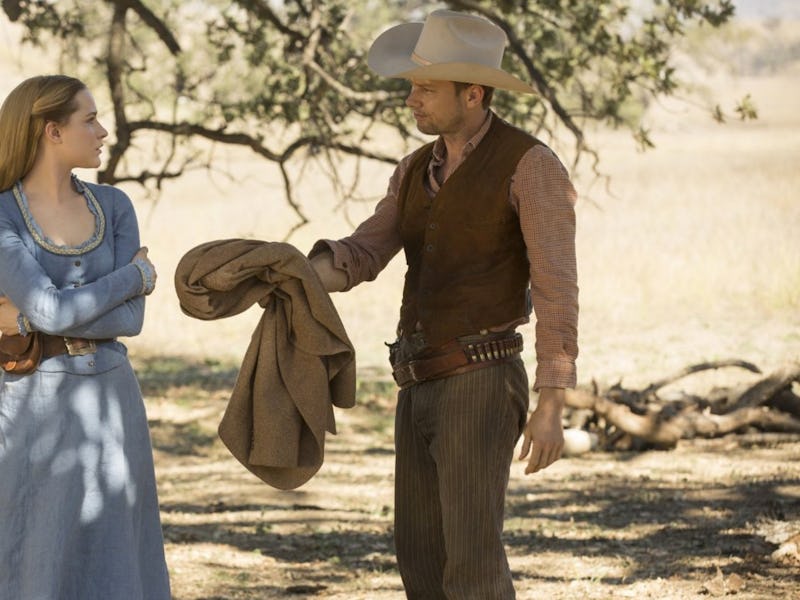Look past the boozing and sex, and Westworld becomes HBO’s own version of Psychology 101. Previous episodes have considered a pyramid model of consciousness and the psychological hypothesis of bicameralism, and in Episode 4, entitled “Dissonance Theory,” it’s clear what the focus of scientific inquiry is. Cognitive dissonance has come to Westworld, and Dolores is in the throes of the experience.
The theory of cognitive dissonance — the idea that humans seek out consistency between their world and thoughts — was developed by social psychologist Leon Festinger in 1957. When there is inconsistency, he proposed, humans will want to eliminate this dissonance — otherwise they risk psychological instability. Humans will try to resolve dissonance by changing one of three things: their beliefs, their actions, or their perception of their actions.
In “Dissonance Theory,” we see two hosts whose worlds have been undermined by terrifying inconsistencies — Dolores and Maeve, the madam of Sweetwater’s brothel. Dolores’s lines make her psychological turmoil more obvious — although it’s unclear whether the heavy-handedness is because of HBO’s writing or if it’s all a part of the new narrative developed by Westworld’s director, Dr. Robert Ford. Dolores is caught in an inconsistent juxtaposition of thought: She once said that she chooses to see the beauty of the world over its ugliness, but she’s now terrified of the world around her. While she previously said she would never hurt a living thing, she’s now killed another host in self-defense. She’s literally — and metaphorically — off her path.
For Dolores, these inconsistencies feel existential. “I used to believe there was a path for everyone,” she tells William. “Sometimes I feel like something is calling me. Telling me there’s a place for me. Somewhere beyond all this.”
Dolores can't comprehend the idea that she isn't real -- yet.
If Dolores were human, you could say that she was trying to put an end to her cognitive dissonance. The authors of the textbook Motivational Science: Social and Personality Perspective argue that the need for cognitive consistency goes back to the idea of terror management theory — the idea that the instinct for self-preservation comes from an awareness of “inevitable mortality.” By allowing Dolores to continue her story after the death of her family (previously, she had to reboot and restart), Ford has given her a taste of mortality. Now, she’s looking for stability, which in turn brings security to her universe — and reason to her existence.
“From a TMT [terror management theory] perspective, consistency among cognitions is a necessary prerequisite for faith in an orderly and stable conception of reality that imbues life with meaning,” the authors write. “If cognitions do not seem to follow from one another, then one is living in an absurd Alice-in-Wonderland type of existence in which nothing is sensible or explicable.”
Westworld has been telling us that Dolores is an Alice figure from the very first episode. It’s more than being another blond girl in a blue dress — she’s straight-up been given the book to read aloud and asked how its parable relates to her own existence in Episode 3. Now, just like Alice, Dolores is experiencing a cognitive dissonance in her reality, but for now it’s unclear whether she’ll find her path or if she will continue to fall down the rabbit hole.
